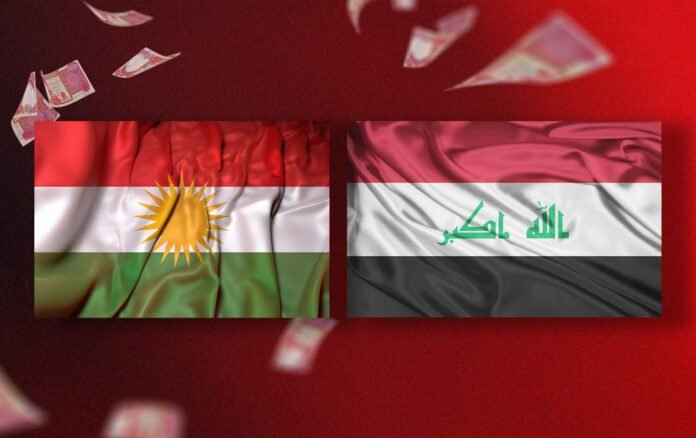A top delegation from the Kurdistan Regional Government (KRG) arrived in Baghdad on Wednesday to push forward a financial agreement. The talks focused on auditing non-oil revenues and resolving salary payment delays.
The delegation includes directors from the KRG’s Ministry of Finance and Economy and the Director General of Banks. They met with officials from Iraq’s Ministry of Finance and the Federal Board of Supreme Audit to begin implementing the new agreement.
This meeting is a direct follow-up to the Erbil-Baghdad deal aimed at solving long-standing disputes. These include public sector salaries, non-oil revenue management, and restarting oil exports from the Kurdistan Region.
The agreement requires both sides to complete the audit of non-oil revenues and determine Baghdad’s share within two weeks. These revenues are crucial since Kurdistan’s oil exports were halted in March 2023. That halt followed an international arbitration ruling and caused major financial pressure in the region.
According to the agreement published on July 17, a joint team must audit and classify non-oil revenues starting from May 2025.
Meanwhile, salary disbursement for May remains uncertain. The Iraqi Ministry of Finance said it has started the payment process. However, the KRG’s Ministry of Finance has not yet confirmed the funds have reached Erbil’s Central Bank branch.
Sources say the delay happened because Iraq’s Finance Minister signed the release late on Tuesday, after business hours. KRG officials expect the funds to arrive soon and could start distribution by Thursday, July 24.
Despite the uncertainty, the KRG has shown commitment. On Tuesday, it deposited 120 billion dinars of May’s non-oil revenue into the federal account.
The last time Baghdad paid salaries to the Kurdistan Region was on May 13, more than 80 days ago. Under the new deal, the KRG will continue handing over its current oil output of around 80,000 barrels per day to SOMO. In return, Baghdad will cover public salaries going forward.

